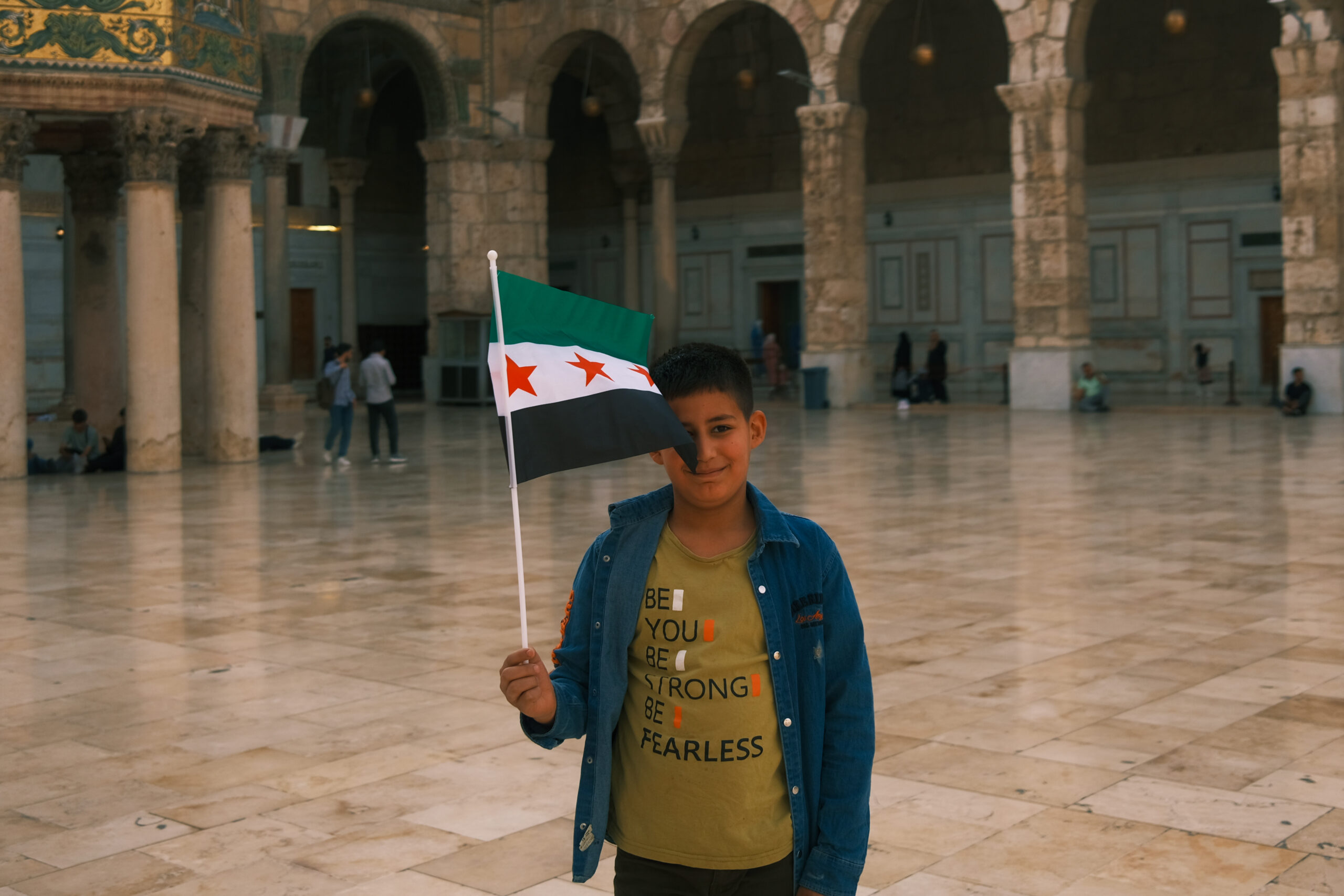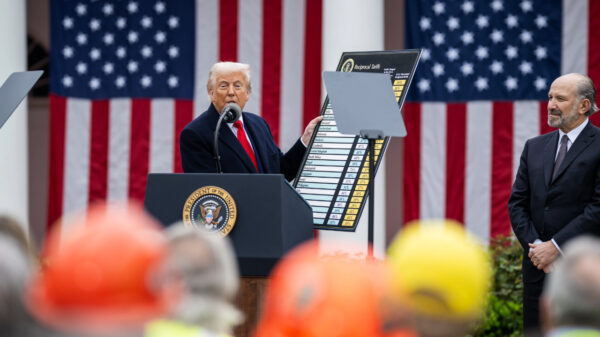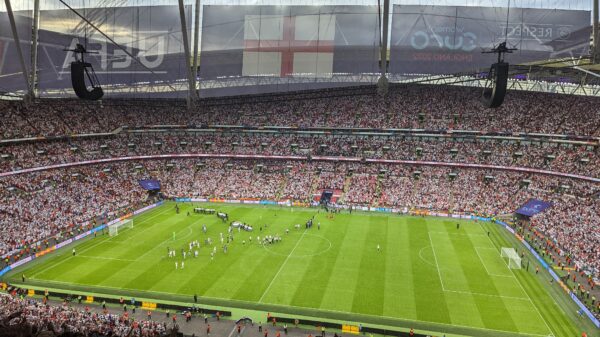Staff writer and photographer Thomas Noonan and Deniz Ok travelled to Syria for an exclusive report on the first Friday prayer held at the city’s historic Great Umayyad Mosque since Trump’s surprise announcement on 13 May. Multiple days of celebration on Damascus’ Umayyad Square followed Donald Trump’s promise to lift American sanctions on Syria.
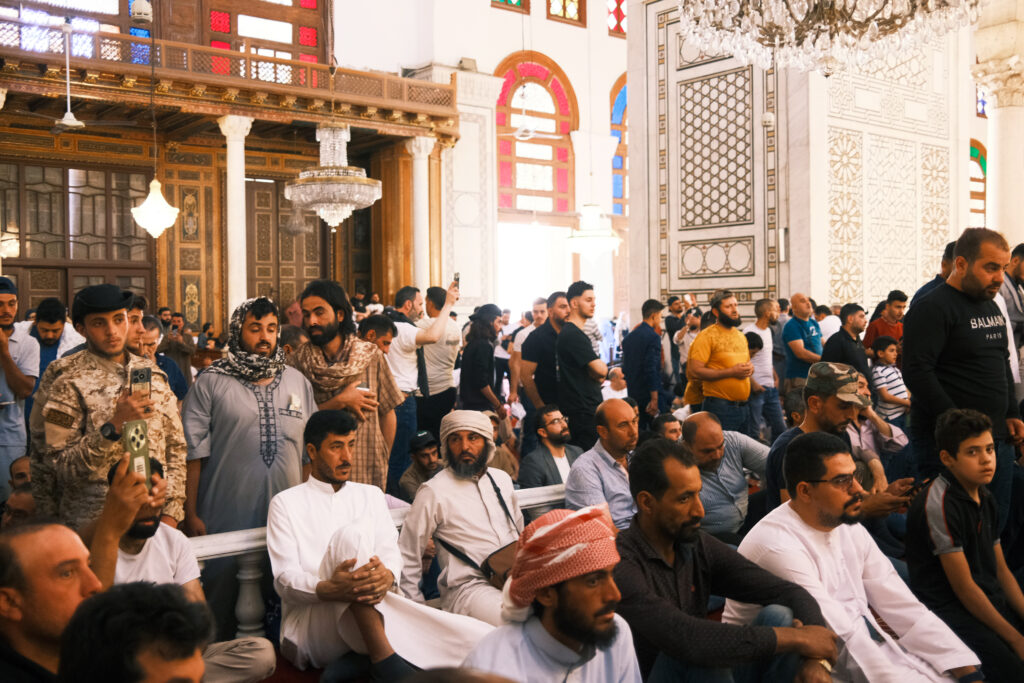
The congregational event marked a significant moment for post-Assad Syria as the new regime consolidates its power. The Great Umayyad Mosque is one of the oldest and largest mosques in the world. Dating from the 8th century, it is also the burial site of Saladin, the Ayyubid Sultan who recaptured Jerusalem from the Crusaders in 1187. It is also where Ahmed al-Sharaa, Syria’s new president with previous associations to al-Qaeda, held his first victory speech after his movement Hay’at Tahrir al-Sham (HTS) toppled the Assad regime.
The congregation was filled with Syrians of all backgrounds. Many came with their families, including many women who attended in the dedicated female prayer area.
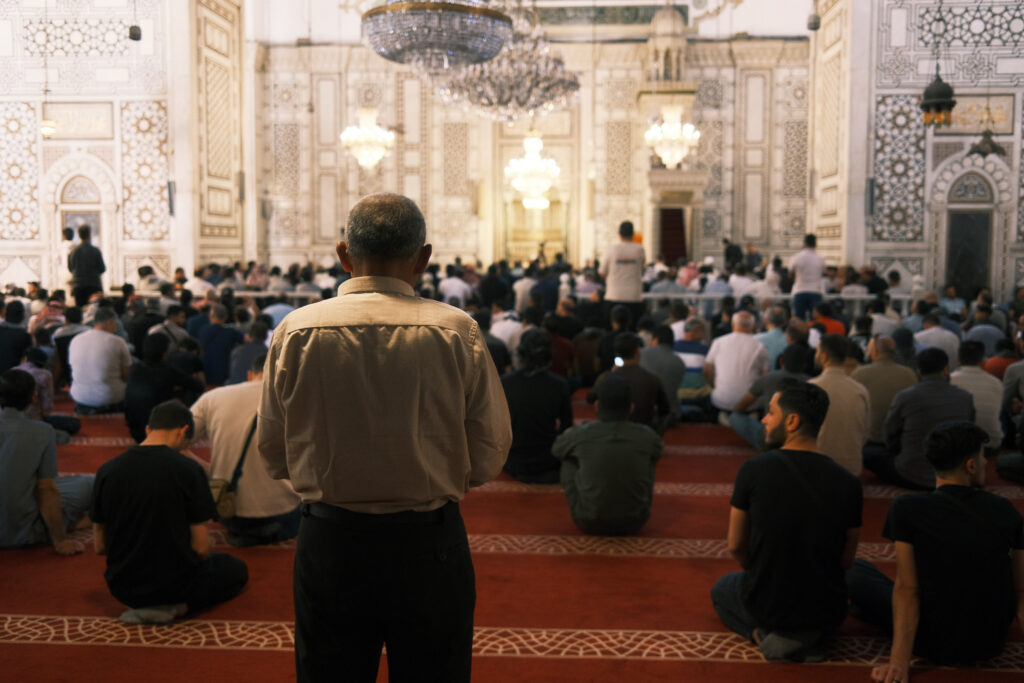
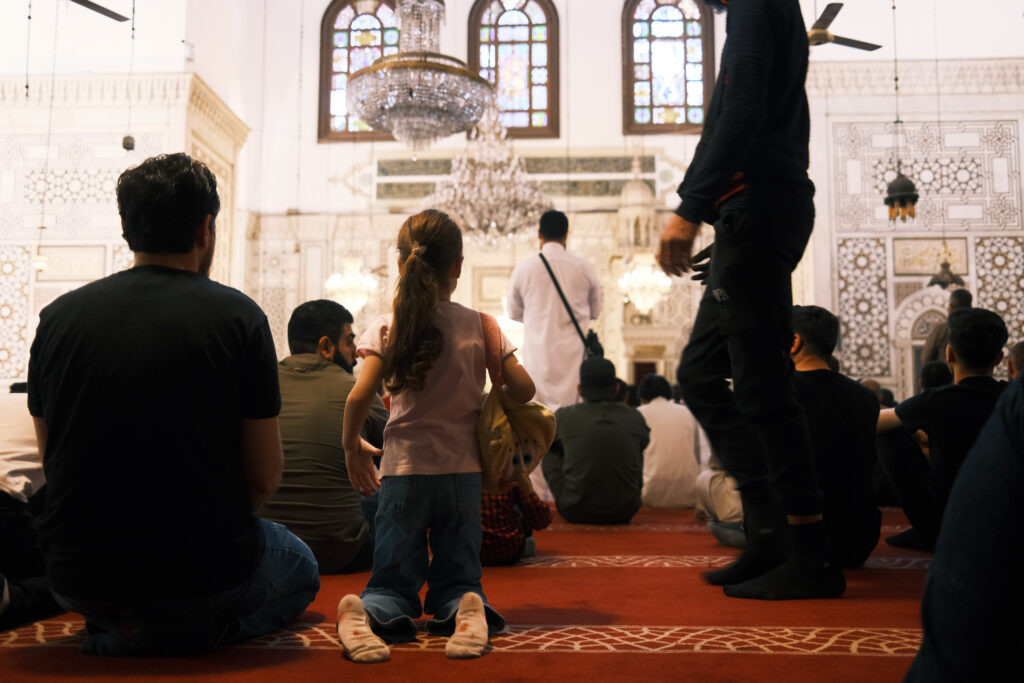
Attendees were very welcoming, smiling and waving in the crowd. In instances where we accidentally blocked someone’s view, we were kindly guided to a better location.
We stood out as non-Syrians, and many came to greet us in the courtyard of the Mosque. They communicated to us in English, French, German and Turkish–languages learned in exile during civil war. The war lasted nearly 15 years, and many told us they were considering returning home.
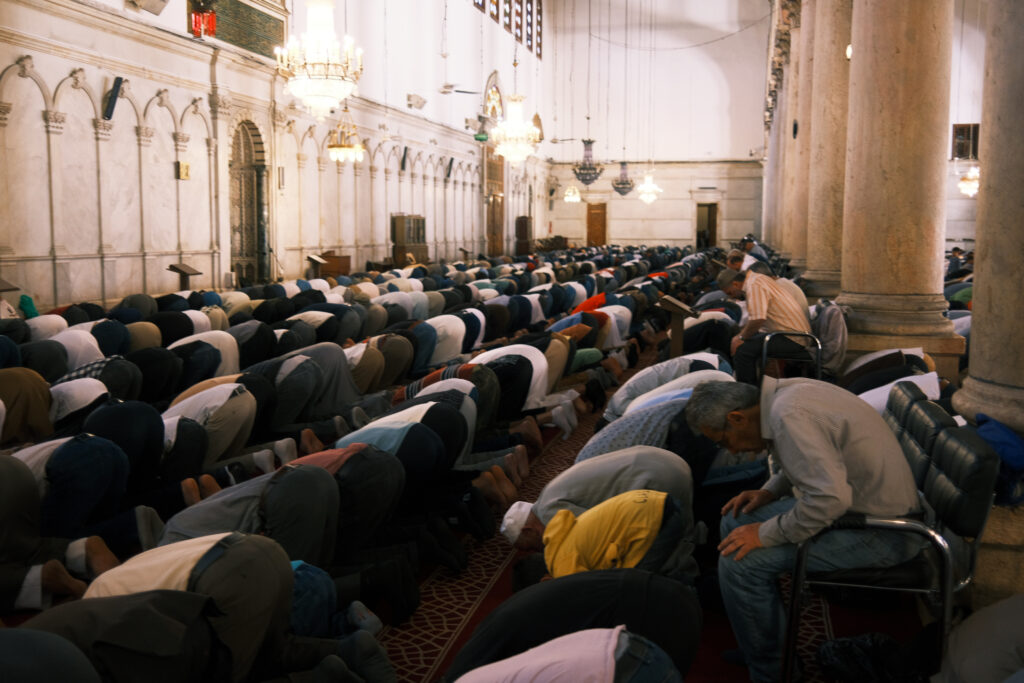
Many soldiers, equally friendly, attended the prayer. They were praised as heroes, as other attendees lined up to take photos with them. Some of the soldiers wore religious iconography, such as patches with the shahada (declaration of Islamic faith).
One soldier, however, wore a patch with the white Muqwaki seal of the Prophet Muhammad on a black standard. The seal is religious and historically innocent, but it has gained wide recognition for its association as the flag of ISIS. Al-Sharaa is hostile to ISIS, which has also been responsible for many of the atrocities Syrians endured over the past decade.
Despite this, we are not aware that the soldier faced any backlash for this display. Clear efforts were made to maintain a welcoming atmosphere.
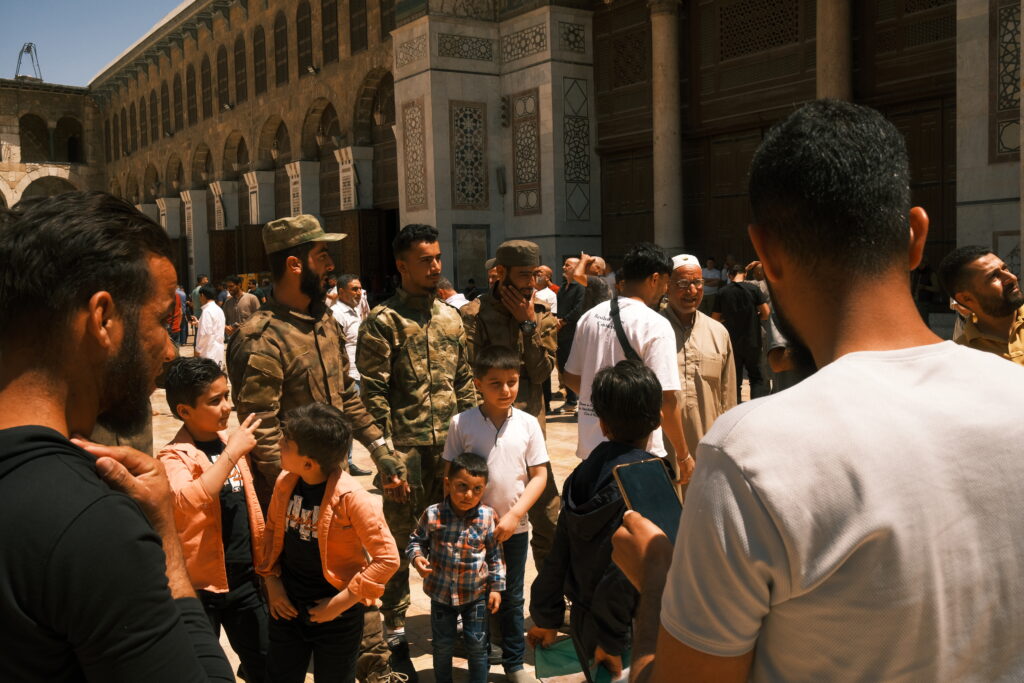
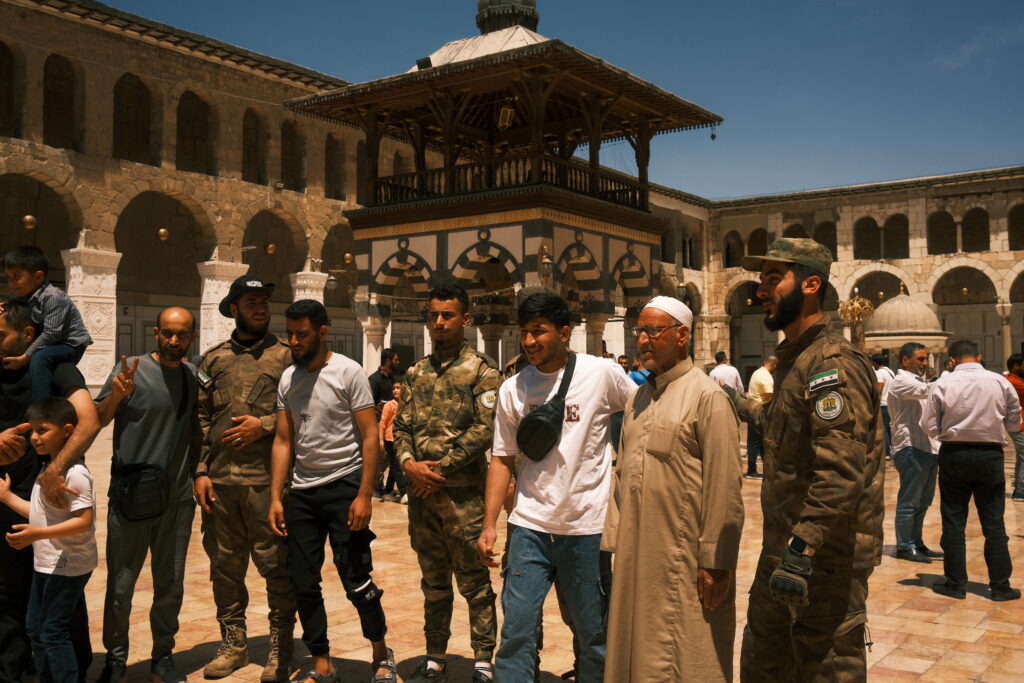
Before every Friday midday prayer, an Imam delivers a sermon to the congregation.
On this occasion at the Great Umayyad Mosque, the Imam celebrated recent political developments in the country. He was pleased that ‘defeatists’, who did not believe sanctions would be lifted under al-Sharaa’s Syria, were proven wrong. Infusing his sermon with Syrian nationalism and divine praises, he empowered attendees’ hopes for the country’s stable future.
The audience shared this optimism, with collective shouts of ‘Takbir‘ (an affirmative phrase, literally calling for ‘magnification’ of praises to God) answered by ‘Allahu Akbar‘ (‘God is the greatest’).
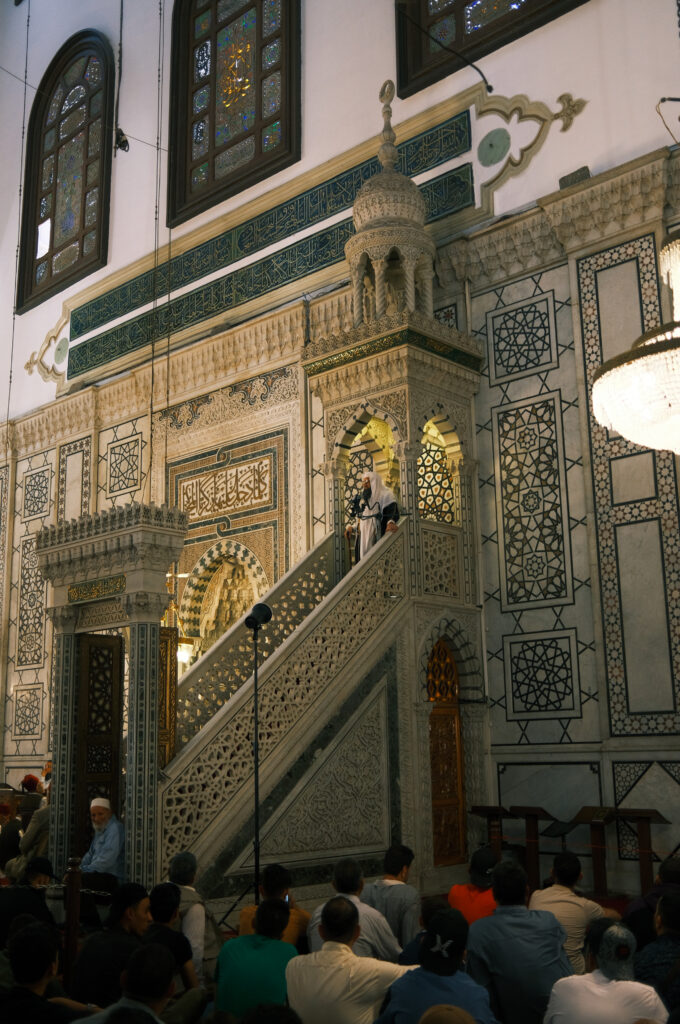
The Imam rejoiced that the Free Syria had succeeded and captured international media attention. This was signified by how many countries were now moving to normalise relations.
In his view, Trump’s promise to lift sanctions was the country’s latest political and economic victory. He expressed how the development would reclaim Syria’s role in the ‘birthplace of civilisation,’ as the country would now begin sending skilled professionals and scientists abroad.
He also rejoiced that, by Allah’s blessing, Syria had shaken off the oppression, injustice and destruction created by Assad’s tyrannical regime. Thanks to the sacrifices of the martyrs, mujahideen, and Syrian people, he proclaimed that the country would usher in a period of freedom, security, and peace moving forward. He added that Syria and the Levant had been reclaimed from Assad’s ‘Shabiha’ militias by Allah’s will.
The Imam’s expression of political hope also acknowledged foreign relations. He added that the Syrian people would not forget those governments that stood with them. He specifically named Saudi Arabia, Qatar, and Türkiye for their continued support. Indeed, Türkiye has supported Syrian rebel groups throughout the conflict, including HTS and the Syrian National Army, while Saudi Arabia and Qatar have facilitated diplomatic engagement with Trump.
He ended his sermon with a word on the oppressed. He wished that, from Syria to Palestine, Allah may heal the sick and wounded. Concluding with this reflection on the atrocities endured in Gaza, the midday prayer was then recited.
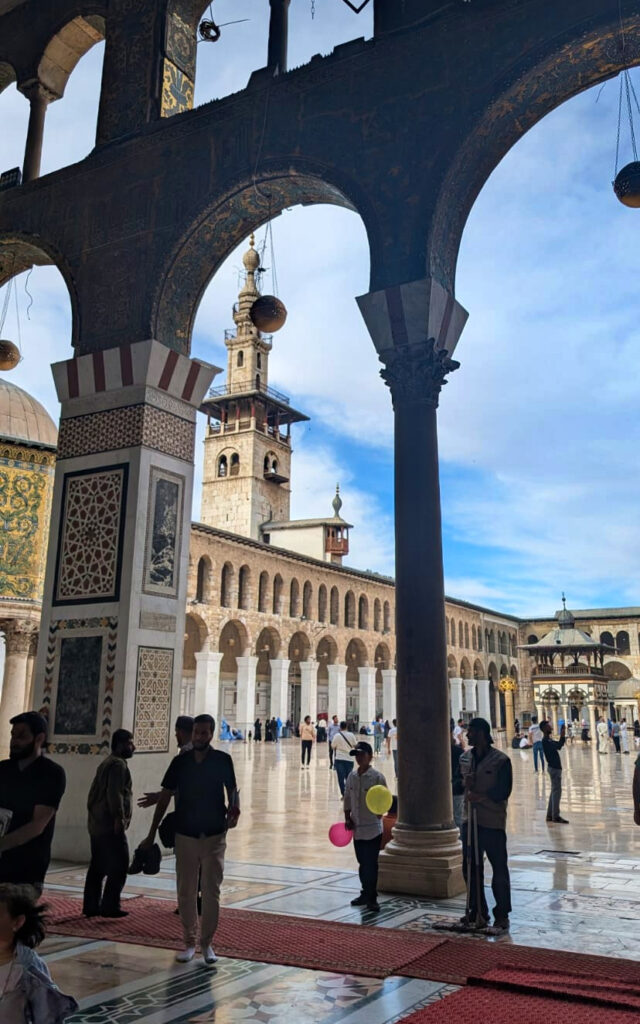
The Imam’s sermon was recorded live and translated later using artificial intelligence tools.
To read Roar’s interview with the head of the KCL Free Syrian Society, click here.
Deniz Ok

